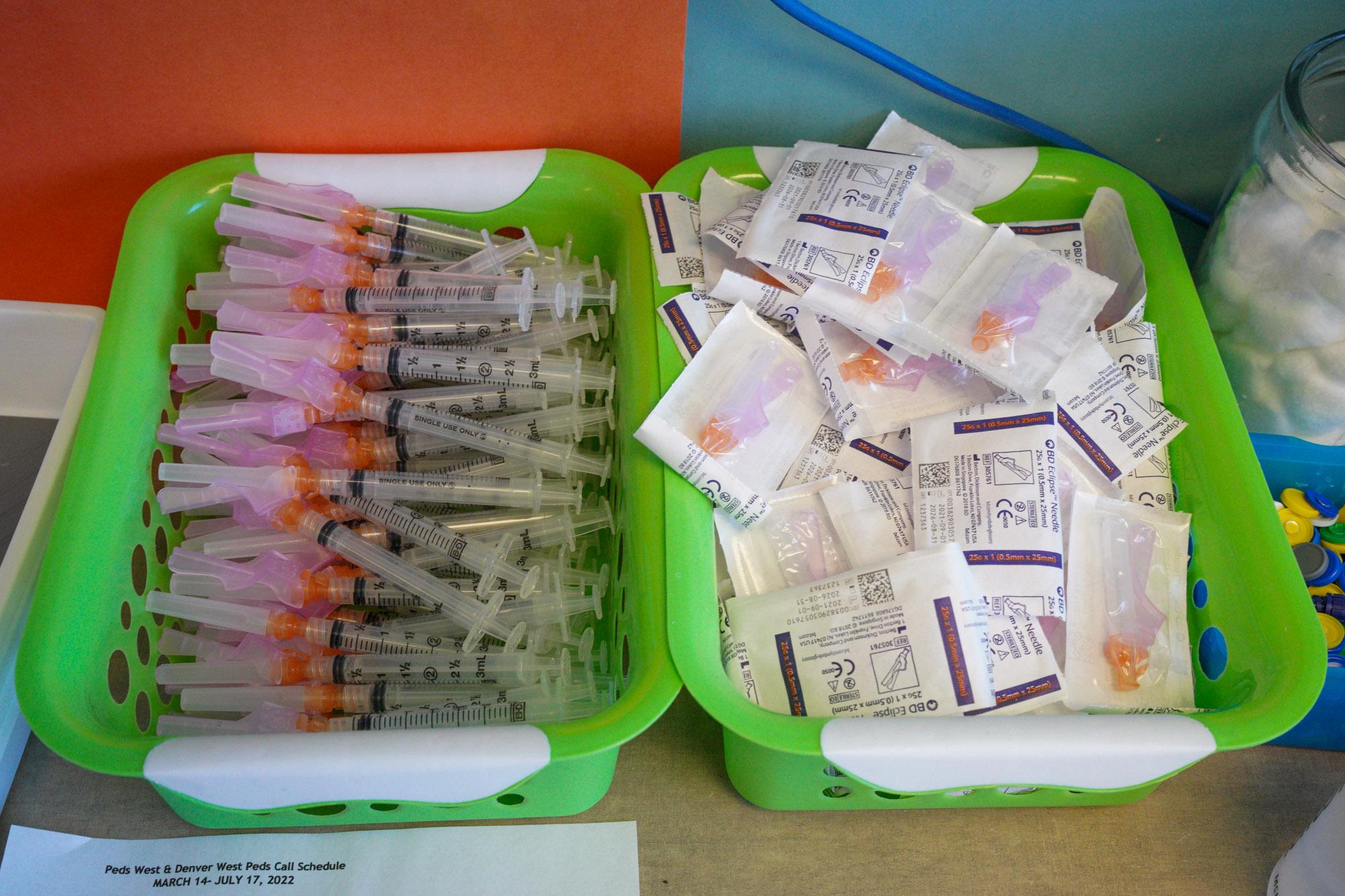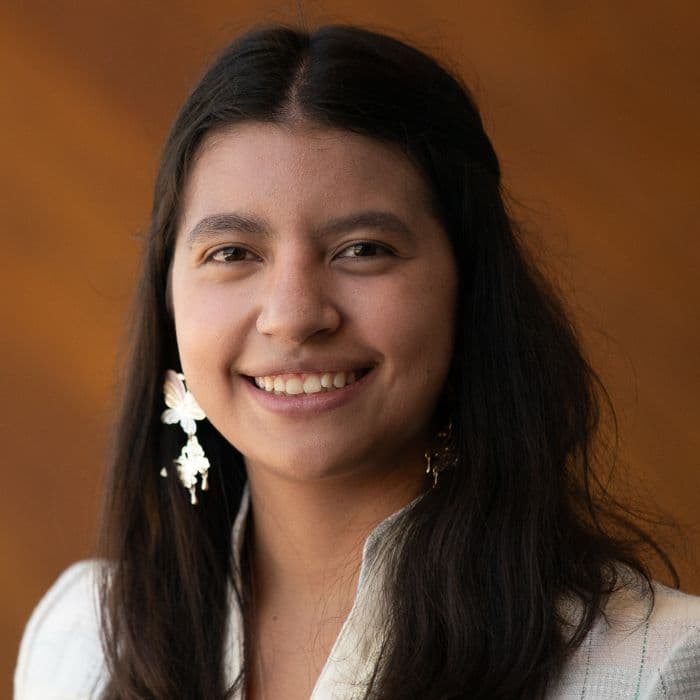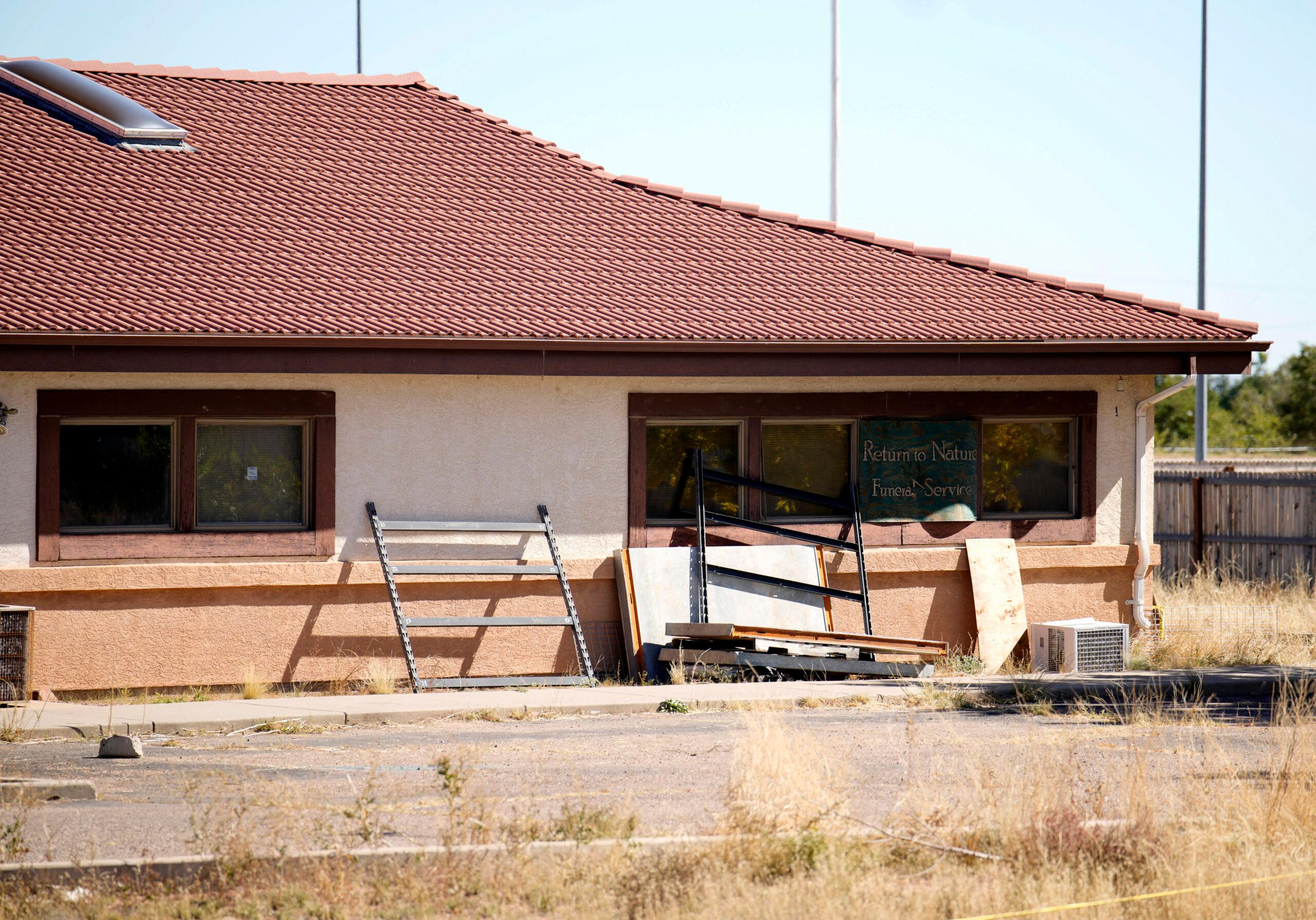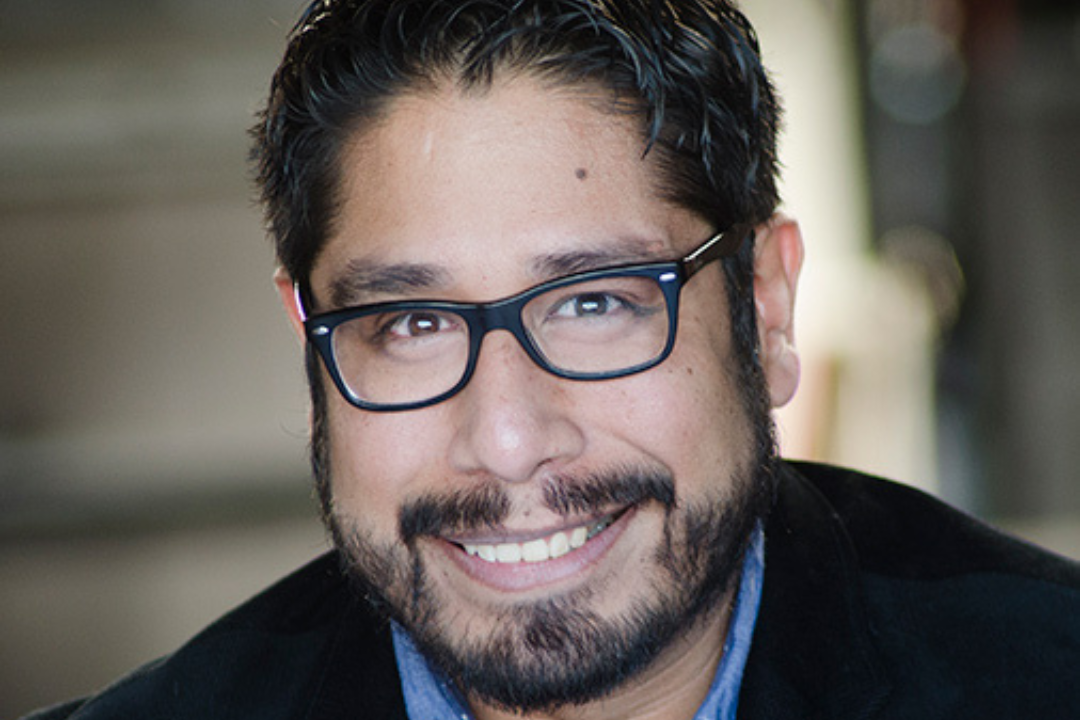
On Tuesday Oct. 22, 2024, CPR Senior All Things Considered Host Nathan Heffel will take the microphone with a new name: Nathan Fernando-Frescas. In the following essay, Nathan describes his journey to discovering, embracing and, eventually, revealing a name that is both new and old.
What’s in a name?
You mean, besides paperwork? Or the law? Or (ugh) taxes?
I guess, naturally, a few things.
Your parents chose a name for you, likely hunting through name books, family histories, and photographs of loved ones — or, in more recent times, late nights Google searching.
And they likely tried on each name for size.
They wondered if it will cause difficulty later on in your life, from school yard teasing to limiting future work.
They checked to see how it rolled off the tongue. They probably even said it out loud in different made-up scenarios.
“Julia, come here.”
“Michael Walter, get down from there!”
“Adriana, how could you?”
“Megan, it’s your birthday!”
“Alex, we are so proud of you.”
“Sarah, we love you…”
And, after all that, they settled on your name.
Then, the paperwork. It's plastered on your birth certificate and your social security card. It's stuck on endless documents and lists and letters, school absence slips and get well cards, invitations and notes from friends (maybe from a secret admirer or two). You hear it called by loved ones and airport intercoms. You say it to strangers who will stay strangers and strangers who’ll become family. You read it on things big and small, meaningful mail and junk, on diplomas and bills and (ugh, yes) taxes. Until, eventually, it’s printed on your death certificate.
One name.
So, why am I changing mine? Why am I going through the hassle midway through this ride?
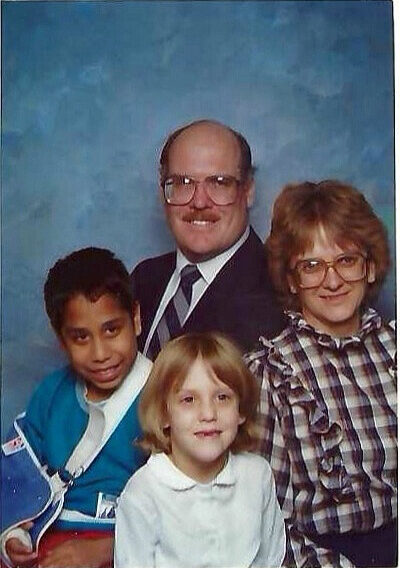
I was born in El Paso, Texas, in 1979. Shortly thereafter, I was adopted by two of the most loving parents ever, William and Donna Heffel. Both were born and raised in Racine, Wisconsin. My mom’s side was a certified “Century Family” of Racine County, meaning her heritage could be traced back in the county 100 years. (The certificate still sits in my grandparents' Wisconsin home.) And, although my dad had no official certificate, it’s a safe bet the local Heffel lineage went back just as far.
It’s also safe to say my Dairy State family was as white, German, and midwestern as they come.
So, I always knew I was adopted. Two white parents and a little brown baby? That’s a pretty hard secret to keep.
My mom even read me a classic 1930’s storybook called “The Chosen Baby” which explained the adoption process. On one hand it was well intentioned and loving. On the other hand it was typically (even comically) 1930s whitewashed. You know it: a little white baby in the arms of a loving white mom in a chiffon dress, the blonde haired dad in a sleek suit and tie.
“You’re a Heffel. You’re always going to be a Heffel,” I was told. “And our culture is your culture. Your adoption was just a blip. You’re one of us now. Forever.”
They meant well. Intentions meant to make me feel welcome, to make sure I wasn’t set apart from the family, to make me feel loved.
But, naturally, I grew up having very little knowledge about my birth mom or my adoption story — let alone my Latino culture.
Over the years, I made up an elaborate tale that my birth mom had stolen away across the Mexican border in the dead of night. She had me in a tiny El Paso hospital, an O.R. with pale-green tiles. White doctors with white outfits put me in an incubator. Then she raced back over the border to Mexico – never to be seen again.
I envisioned myself connected to the indigenous Mayans of Mexico and truly believed (sometimes to this day) that I am descended from Mayan royalty.
In my teens pieces of my adoption story started to come out – like that my first name had actually been something besides Nathan.
I had discovered a photo deep inside a treasure trove of Heffel albums in my parent’s basement. Tucked in the back of one was a picture of a smiling toddler, of me, on a picnic bench. I was dressed in a white T-shirt with green corduroy overalls, my cute little bare feet sticking out.
Written on the back was: “Freddy.”
The handwriting was clearly that of my adoptive mother.
What’s in a lost name?
After discovering the barefoot toddler, I stared at the photo closely, longingly, as he smiled back at me.
Was that me? My parents hadn’t fostered another kid before, right?
I asked my mom. With little fanfare (and near nonchalance), she told me my birth name was Fernando.
I gathered my adopted parents changed it to something more American once the paperwork was court certified.
Then in 2015, more of my birth story came to light when my adoptive mom passed away and we retrieved a safety deposit box while settling her estate.
Inside, neatly folded in an envelope, along with other important documents, were the forms and paperwork given to my adoptive parents after my birth.
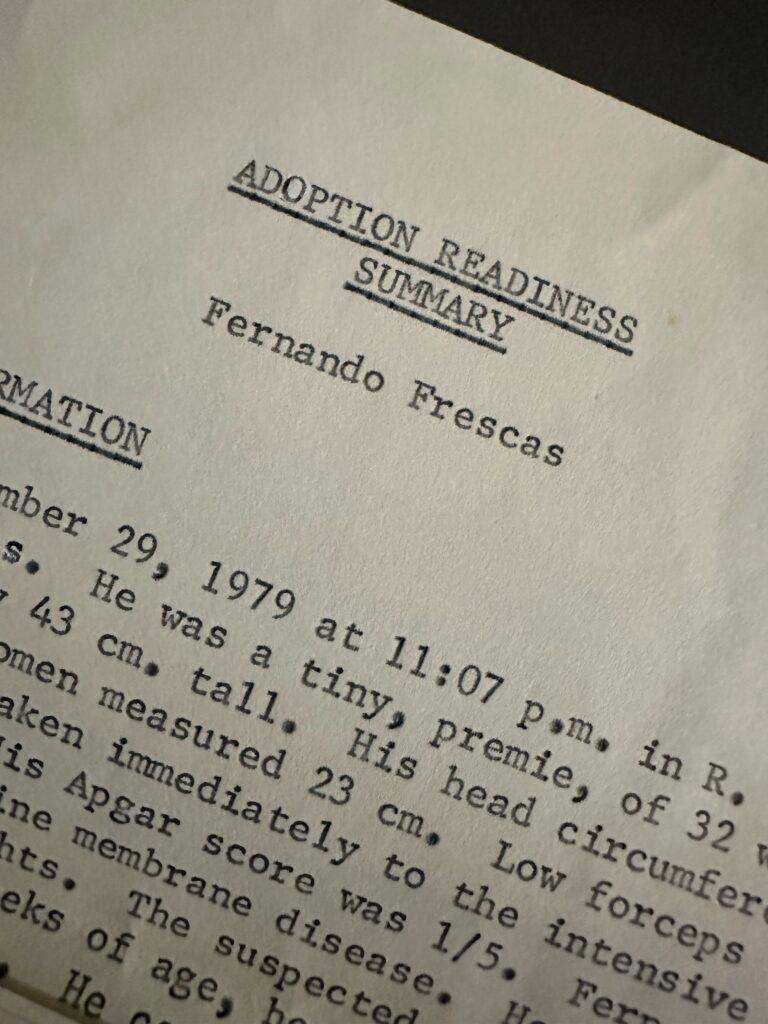
Adoption papers for Nathan Fernando-Frescas. 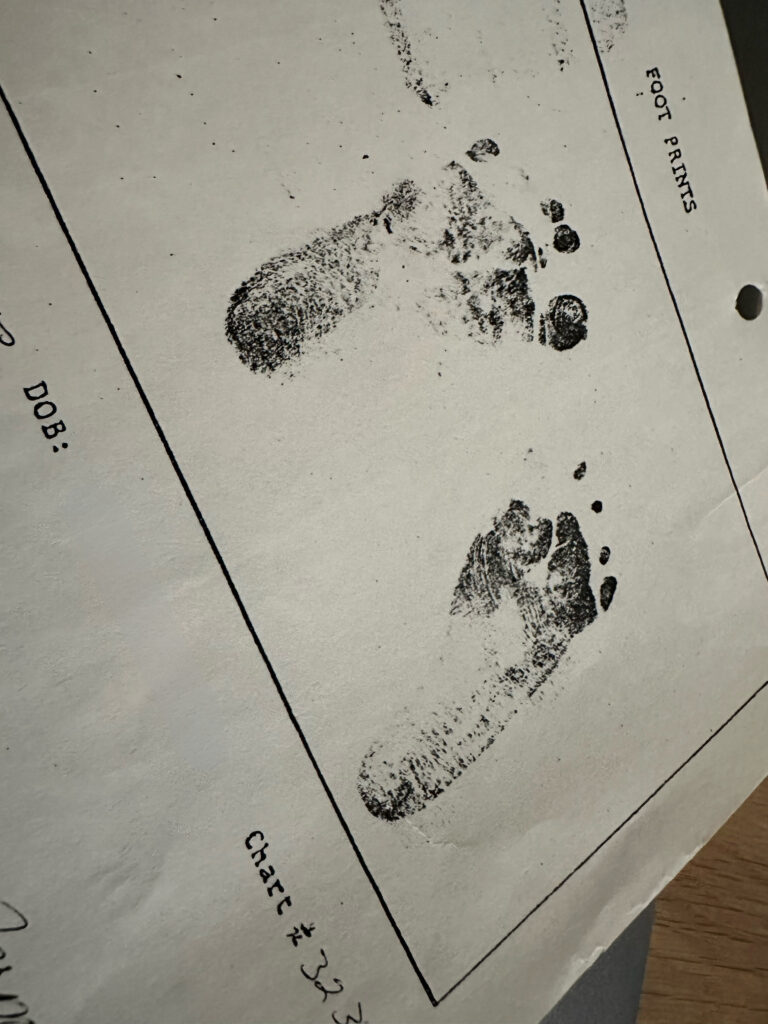
Adoption papers, including foot prints and a blurred out date of birth, for Nathan Fernando-Frescas.
They were created by the Texas Board of Health in 1979. The staples holding them together were long-since rusted, the edges of each page were frayed and soft. But the typewritten words were formal and hard:
Fernando Frescas - boy.
Born December 29th, 1979.
Background of Placement - Ms. Frescas was born and raised in El Paso, Texas and is of Mexican descent. She voluntarily relinquished the child. She had no income, residence, or resources. She felt she was not emotionally prepared to care for the child. She had a casual relationship with the alleged natural father in the summer of 1979 and did not know where he was. Fernando’s biological mother has no known health problems, although she is a heavy drinker.
The formality of it all was hard to take in. Even harder was the realization that the elaborate visions of my birth and my birth mom weren’t true.
She had not stolen away from Mexico in the dark of night to have me. She was not Mayan royalty. Instead: She immediately relinquished me; She returned to her daily life in Texas; She was a heavy drinker.
A boy named Fernando Frescas
The name has been on my mind ever since – sometimes front and center and alive, other times just a fleeting thought while slipping into sleep.
But recently, I haven’t been able to shake the idea that there is a more fully formed me missing from daily life. That, in some ways, a part of me has been hidden, waiting.
Changing a name can be such an enormous thing. When it happens, it’s usually a celebration, like being married. Or sometimes it’s a full break from a painful past and a chance to start clean.
For me, it’s about embracing my whole story.
Yes, I am Nathan Heffel, the son of loving white parents in the Midwest. I grew up with trips to the Northwoods and learned the traditions of my family. Traditions I still hold tightly.

Yes, I am Fernando Frescas, a descendant of the Frescas family of El Paso, Mexican-Americans with a rich history full of stories I’ve never heard and traditions I’ve never experienced.
All at once it feels so right and strange and scary to change my name. I know there will be confusion, doubts, perhaps even mocking.
That’s ok.
This Tuesday, when I go on air for the umpteenth thousandth time in my career, I will be using my name: Nathan Fernando-Frescas. And while so many things will be routine, the name will acknowledge who I am for the first time.
Nathan will continue to honor my adoptive parents, what they chose for me, the love and home they gave me.
Fernando Frescas will honor my birth, my history, my unsplittable connection to a world living inside me.
And while I’ve never met my birth mother, nor my birth family, I know she said my name over and over, trying it on for size, seeing how it rolled off the tongue, perhaps choosing to honor her family — my family.
Now, I can honor that.
When my birth mother said good-bye for the last time, she used my name.
When my adoptive parents said hello for the first time, they used my name too.
So, what’s in a name?
To start, everything.

